A guidebook for navigating interfaith marriages across religions
“Things were hard as she stated, this was not easy, would it be easier if I was Christian or she Muslim? Maybe. All relationships require compromising and ours just happens to be a little more personal than others” – Amir Webb 2016
Today, interfaith marriages are more common than ever, and they reflect a growing acceptance of religious diversity. But while society has embraced these unions, navigating them personally can still come with its challenges. From deciding on holiday traditions to talking with family members, building a life together across faiths can be complex – but it can also be deeply rewarding.
History of Interfaith Marriage
Interfaith marriage has taken many forms throughout history, evolving as societies have grown more diverse. Traditionally, many religions, including Judaism and Christianity, encouraged same-faith marriages as a way to preserve religious identity and ensure that shared beliefs were passed down through generations. This perspective stemmed from a time when religious communities were more insular, and marriage was often seen as a means of continuing both family heritage and cultural values within a single tradition.

Today, interfaith marriages are more common than ever, reflecting broader social acceptance and a more inclusive approach to love across differences. For many couples, interfaith marriage is a celebration of diversity and shared values, and an opportunity to build a family that honors both partners’ backgrounds. However, despite these shifts, not all families or communities embrace the idea of interfaith marriage. Some families still hold strong to traditional beliefs, worrying that interfaith unions could dilute or weaken religious identity. In certain cases, communities may discourage, or even outright prohibit, interfaith marriage.
Why are there challenges with interfaith marriage?
- In the Jewish Religion: Interfaith marriages in Judaism often raise concerns about preserving Jewish identity, traditions, and the religious upbringing of children, creating potential conflicts over cultural continuity and communal acceptance.
- In the Christian Religion: Interfaith marriages challenge Christianity’s emphasis on shared spiritual practices and biblical principles, such as being ‘unequally yoked,’ which can lead to tensions over faith alignment and family values.
How Have Their Beliefs Evolved Over Time
Christianity:
Christian views on interfaith marriage have gradually shifted, particularly in more progressive denominations. Historically, the biblical principle of being “unequally yoked” (2 Corinthians 6:14) discouraged unions with non-Christians, emphasizing shared faith as a cornerstone for marriage and family. Over time, however, many Christian communities, especially in diverse and secular societies, have moved towards acceptance. This change reflects a broader focus on love, mutual respect, and individual spiritual journeys rather than strict adherence to uniform belief systems. As seen in the rise of interfaith marriages and declining stigma, many Christians now view such unions as opportunities to grow spiritually and deepen their faith through diverse perspectives.

Judaism:
Judaism’s approach to interfaith marriage has also evolved, though responses vary significantly across denominations. Traditionally, Jewish law (halacha) discouraged intermarriage to ensure the survival of Jewish identity and heritage. Orthodox Judaism largely maintains this stance, but Reform and Reconstructionist movements have become more accepting over time. The growing trend of interfaith marriages among non-Orthodox Jews has led to increased efforts to integrate interfaith couples into Jewish communities. These changes include officiating at interfaith weddings, welcoming children of interfaith unions, and providing resources to maintain Jewish identity. This evolution underscores a shift from outright rejection to inclusion, balancing tradition with the realities of modern, multicultural societies.
Case Study
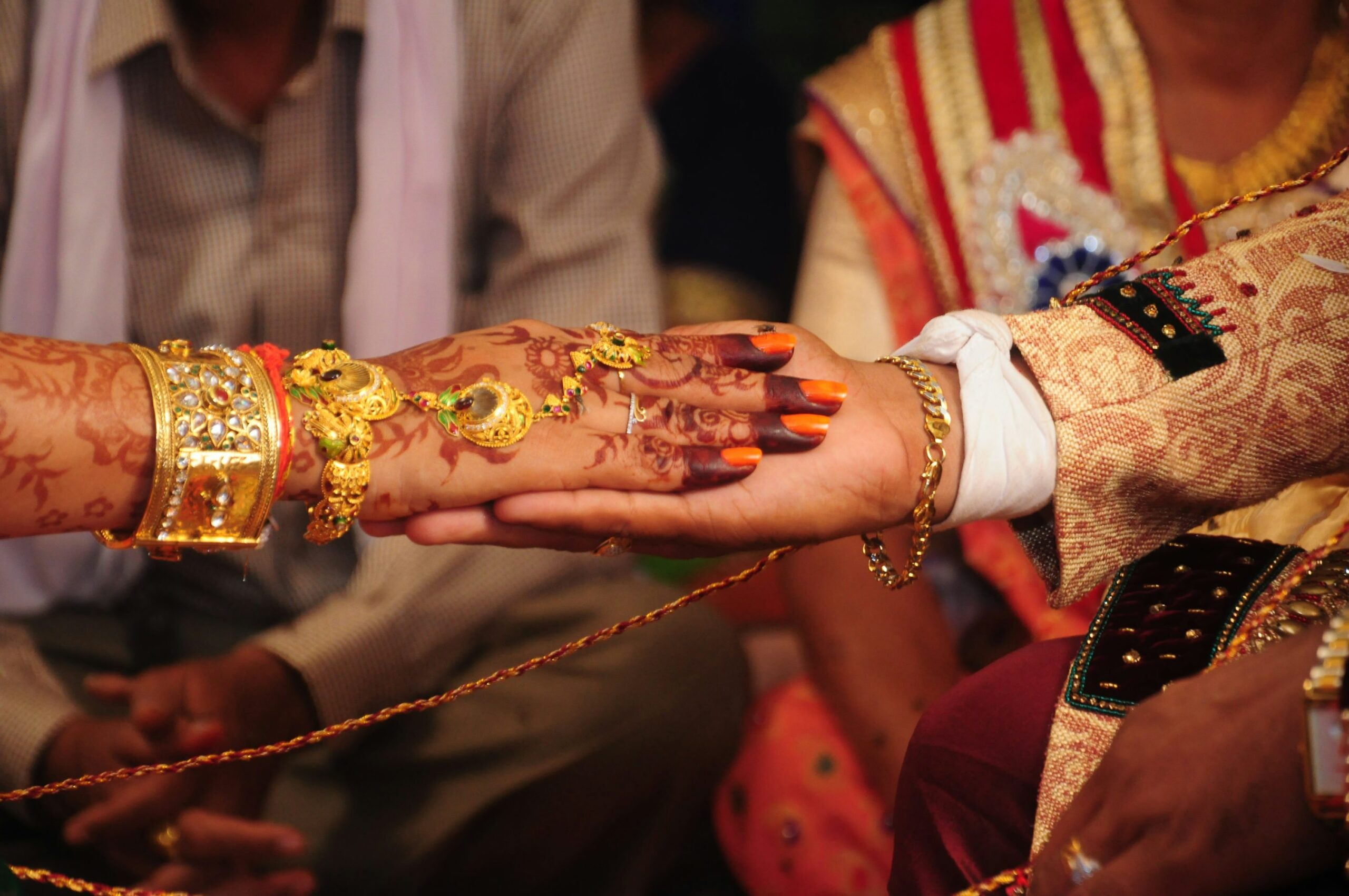
Couple One: Jewish – Hindu
Jared and Jaina exemplify how respect and cultural integration can foster a successful interfaith marriage. Initially, both families were hesitant, but the couple worked diligently to honor both traditions. They had two separate wedding ceremonies—one Hindu and one Jewish—and their families eventually embraced the union. Now, their children are raised in both traditions, learning to respect and celebrate their diverse heritage.
Key Points:
- Two separate ceremonies respected both faiths.
- Families overcame initial resistance with time and understanding.
- Their children are raised with traditions from both religions.
Read about Jared and Jaina’s story here.
Couple Two: Hindu – Muslim
This Hindu-Muslim couple faced significant challenges, including societal disapproval, ostracization by friends, and constant fear of violence. Their relationship had to remain secret for five years, and even simple acts like holding hands in public were fraught with danger. Their love endured despite these pressures, but their story underscores the harsh realities many interfaith couples face, particularly in regions with strong societal prejudice.
Key Points:
- Their relationship remained secret due to societal pressures.
- They faced prejudice and fear of violence.
- They could not publicly celebrate their relationship.
Read more about this couples story here.
Specific Interfaith Couple’s Q&A
These questions inspired based off of stories of couples with these experiences!
Christian – Jewish Couples

Both religions have a strong emphasis on moral teachings and community, but they also have key theological differences.
Key Challenges
- Theological Differences: Navigating differing beliefs about Jesus as the Messiah and what this means for faith practices.
- Holiday Observances: Balancing major holidays like Christmas, Easter, Hanukkah, and Passover.
- Dietary Practices: Managing dietary differences, especially if one partner keeps kosher.
- Family Expectations: Addressing concerns about maintaining cultural or religious identity, particularly around marriage and children.
Q&A
- How do we handle resistance from family members who oppose our interfaith marriage?
- Family resistance is a common challenge, often rooted in deep cultural or religious ties. Start by having honest conversations, emphasizing your love and mutual respect as a couple. Share how you plan to honor both traditions and address their specific concerns. If emotions run high, consider involving a mediator, such as a counselor or supportive family member, to facilitate understanding. Patience and boundaries are key to navigating these difficult conversations.
- How do we navigate feelings of exclusion during key religious milestones?
- Religious milestones, like baptisms or bar mitzvahs, can evoke strong emotions. If one partner feels excluded, acknowledge those feelings and discuss how to involve them in meaningful ways. For example, the non-Jewish partner at a bar mitzvah could light candles or give a blessing. Open communication and small gestures of inclusion can help both partners feel valued during these moments.
- How can we make holidays meaningful for both partners, especially when they have different religious or cultural significance?
- Rather than blending holidays into a single event, celebrate them distinctly to honor their unique meanings. For example, enjoy Christmas with one family and Hanukkah with another, or host a dinner that incorporates both holiday traditions. Discuss how each holiday feels meaningful to you and look for creative ways to include both in your celebrations.
- How can we navigate family disapproval in cases where Orthodox Jewish relatives strongly oppose our interfaith marriage?
- Orthodox Jewish families often place a strong emphasis on marrying within the faith, which can lead to resistance. Start by acknowledging and respecting their perspective, even if you disagree. Focus on open, honest communication that emphasizes your shared love and commitment. Be prepared for the possibility that some relatives may not come around and establish boundaries to protect your relationship. It’s important to find support from others who respect your choices, whether through friends, counselors, or inclusive community groups.
- What are some ways to create a meaningful wedding ceremony that reflects both Christian and Jewish traditions?
- An interfaith wedding can beautifully blend elements from both traditions while celebrating your unique partnership. Consider including:
- Co-Officiants: Invite a rabbi and a minister to lead the ceremony, ensuring both faiths are represented.
- Symbolic Rituals: Combine traditions like breaking the glass (Judaism) with Christian readings or blessings.
- Shared Vows: Write your own vows that highlight shared values and love, transcending religious boundaries.
- Inclusive Décor: Use symbols like a chuppah for the ceremony space and candles to represent unity.
- Music and Readings: Select pieces meaningful to both faiths, such as a psalm or a passage from the Torah.
- An interfaith wedding can beautifully blend elements from both traditions while celebrating your unique partnership. Consider including:
Read more about Jewish and Christian Couples:
Christian – Muslim Couples
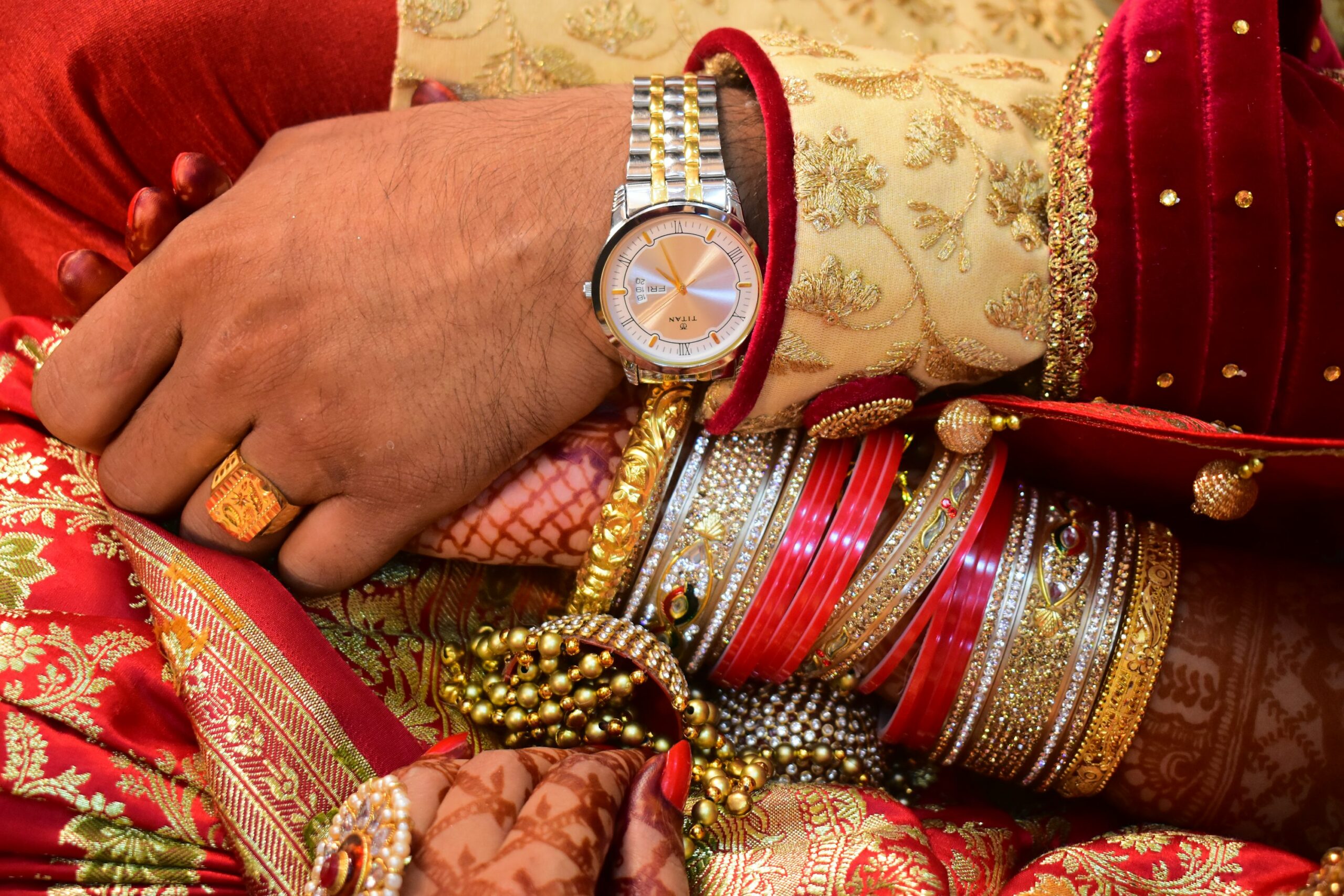
Muslim-Catholic couples bring together two rich and structured faith traditions that share common values such as family, charity, and devotion to God. However, they also face unique challenges, including differences in worship styles, religious laws, and community expectations.
Key Challenges
- Dietary Practices: Navigating halal requirements versus Catholic dietary customs.
- Religious Rituals: Balancing Islamic prayers with Catholic sacraments.
- Family and Community Expectations: Addressing differing views on interfaith marriage acceptance.
- Children’s Upbringing: Deciding on a single faith, dual exposure, or shared values for children.
- Holidays: Managing celebrations like Ramadan, Eid, Christmas, and Easter.
Q&A
- What should we do if Catholic family members insist on following Catholic marriage sacraments, like a church wedding?
- If a Catholic wedding is important, consider combining it with an Islamic nikah (marriage contract) to honor both traditions. Engage with a priest and an imam to craft a ceremony that reflects your shared commitment.
- How do we handle dietary challenges, like preparing meals for Ramadan while observing Catholic fasting traditions?
- During Ramadan, focus on preparing halal meals for Iftar and Suhoor while incorporating Catholic fasting customs like simple meals or abstaining from meat on Fridays. These shared meal preparations can reflect both traditions, fostering a sense of unity and care.
- How do we handle differing views on the role of women, especially if cultural expectations conflict with Catholic and Islamic values?
- Both Islam and Catholicism emphasize the dignity and importance of women, though interpretations of roles can vary. In Islam, the Qur’an highlights equality in spiritual and moral responsibilities but is sometimes interpreted through patriarchal cultural lenses. Similarly, Catholic teachings value the complementary roles of men and women but have historically assigned distinct responsibilities. Discuss the religious teachings behind these roles rather than relying on cultural norms. For example, explore Islamic teachings on women’s rights in marriage and Catholic principles of mutual submission within a partnership. A shared understanding of your faiths’ values—centered on respect and equality—can help you build a relationship that honors both traditions while challenging outdated cultural expectations.
- How can we ensure both partners feel equally valued when one religion has stricter requirements, such as raising children as Muslims?
- Balance starts with open communication. While raising children as Muslims may be required in Islam, acknowledge and celebrate the Christian partner’s faith through cultural traditions and shared values. This ensures both partners feel their beliefs are respected.
- How do we approach the topic of polygamy in Islam if it conflicts with the Christian partner’s belief in monogamy?
- Polygamy in Islam is permitted but not obligatory, and it requires just treatment of all spouses. Discuss your views openly, ensuring both partners agree on monogamy as the foundation of their marriage. Mutual respect and transparency are key to addressing this concern early in the relationship.
Read More
Christian – Buddhist Couples
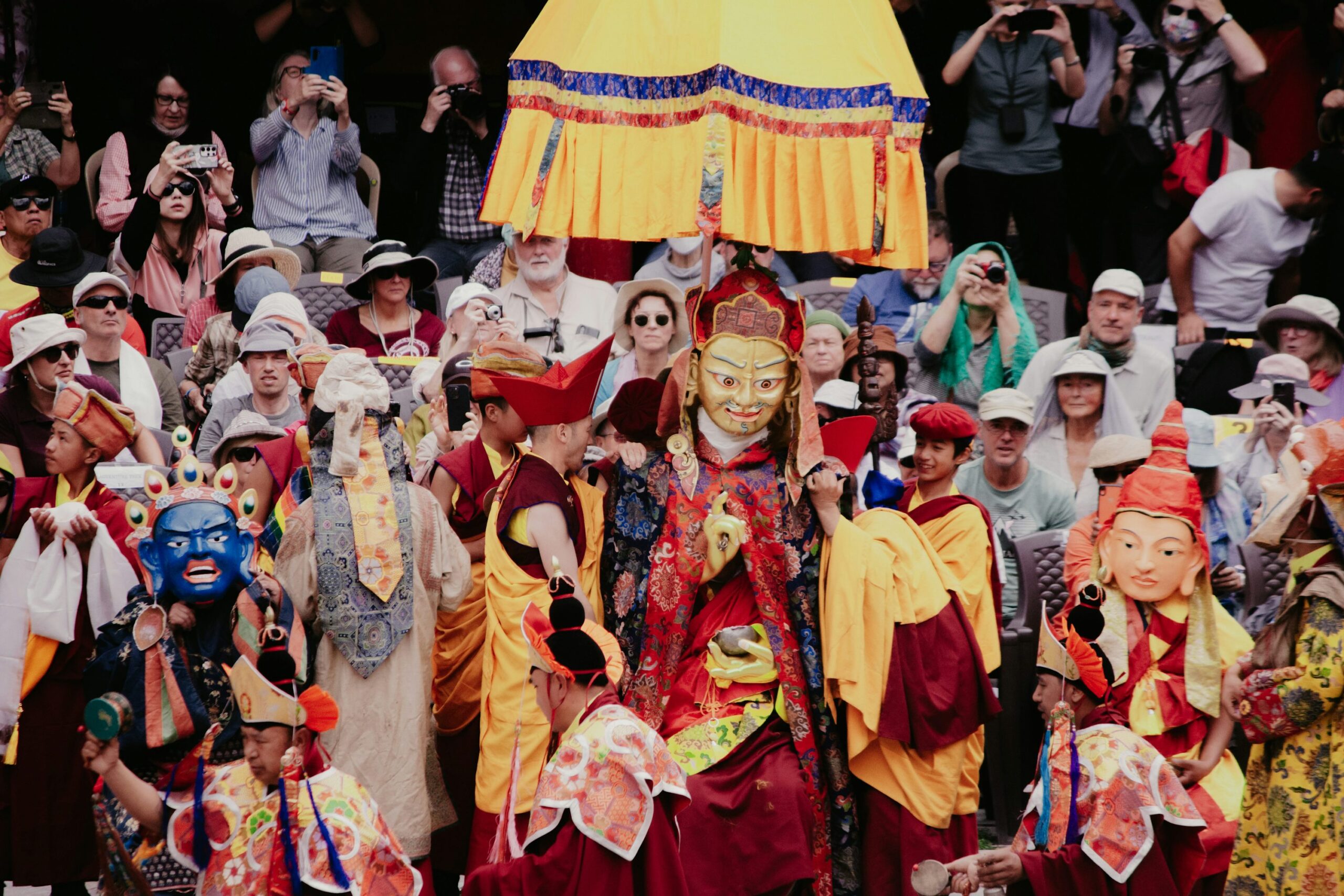
Christian-Buddhist couples blend two distinct worldviews: Christianity, centered on faith in God and salvation through Jesus Christ, and Buddhism, focused on self-enlightenment and the cessation of suffering through the Eightfold Path.
Key Challenges:
- Theological Differences: Christianity focuses on God and salvation, while Buddhism emphasizes self-enlightenment without a deity.
- Ritual Practices: Balancing Christian sacraments with Buddhist meditation and mindfulness.
- Parenting: Aligning Christian teachings about God with Buddhist principles of mindfulness and self-discovery.
- Afterlife Views: Reconciling Christian beliefs in heaven and hell with Buddhist ideas of reincarnation and enlightenment.
- Cultural Traditions: Incorporating both faiths’ rituals into events like marriage ceremonies.
- Daily Practices: Balancing Christian worship and prayer with Buddhist mindfulness and ethical living.
Q&A
- How can we reflect cultural traditions in our wedding ceremony?
- Combine cultural rituals, such as a Christian blessing or hymn with a Buddhist chant or mindfulness reading. Incorporate attire from both traditions, like a Western-style wedding gown alongside elements of Buddhist dress, such as a saffron sash or flower garlands, to honor both cultures.
- How do we celebrate rites of passage, like baptisms or Buddhist naming ceremonies, in a way that honors both faiths and cultures?
- Incorporate elements from both traditions into key events. For instance, a Christian baptism can include a moment of mindfulness or a Buddhist blessing. Similarly, a Buddhist naming ceremony can be complemented with a Christian prayer, ensuring both faiths are represented.
- How does each tradition view interfaith marriage, and what challenges might arise from these views?
- Christian denominations vary, but many encourage marrying within the faith to preserve religious identity, with some requiring special permissions for interfaith marriages. Buddhism generally has fewer restrictions, emphasizing ethical compatibility over religious uniformity. Challenges may arise when navigating differing expectations from family or religious communities.
- How do we navigate dietary restrictions, such as Buddhist vegetarianism versus Christian flexibility
- If one partner is vegetarian, create meals that can be easily adjusted. For example, cook vegetable-based dishes with meat added separately for the Christian partner. Learn about Buddhist fasting days (uposatha) and Christian practices like Lent to respectfully support each other’s observances.
- How can we reconcile the Christian emphasis on sin and redemption with Buddhism’s focus on karma and mindfulness?
- Frame these concepts as complementary rather than contradictory. For example, discuss how Christianity’s focus on forgiveness aligns with Buddhism’s teaching on letting go of negative attachments. Both traditions value accountability and personal growt
Stories
Jewish – Muslim Couples
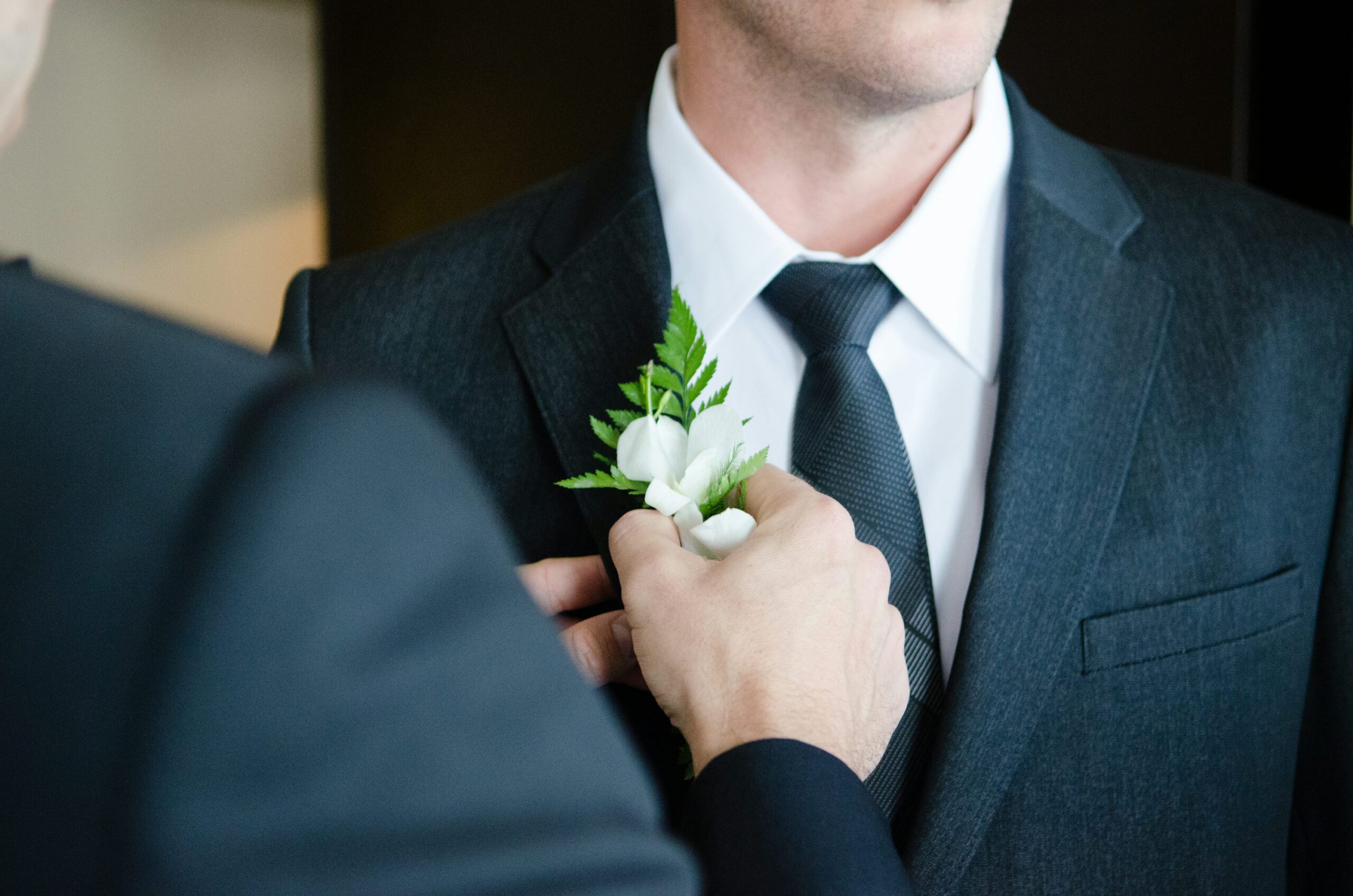
The Jewish-Muslim couple symbolizes a bridge between two rich faiths, embracing shared values of family, tradition, and faith. They navigate differences through open dialogue, celebrating holidays like Hanukkah and Eid together, and fostering mutual respect to create a harmonious and inclusive family life.
Key Challenges
- Dietary Restrictions: Kosher and Halal laws overlap but differ in specifics, which can cause friction in meal planning.
- Religious Practices: Differences in worship times, rituals, and sacred texts may feel isolating to one partner.
- Family Expectations: Both traditions often emphasize marrying within the faith, leading to family disapproval.
- Child Rearing: Deciding whether to raise children Jewish, Muslim, or with exposure to both faiths.
- Holidays and Rituals: Navigating the busy calendar of Jewish and Islamic holidays without marginalizing one tradition.
- Perceptions of Interfaith Marriage: Both religions have strong cultural and theological concerns about interfaith unions.
Q&A
- How can we navigate differences in dietary laws, such as Kosher and Halal?
- Focus on the significant overlaps, such as avoiding pork and ensuring proper slaughter methods. When dining out, choose Halal-certified restaurants that also meet Kosher standards, or stick to vegetarian and seafood dishes. At home, designate separate cookware if needed and agree on shared meals that meet both standards, such as plant-based dishes or fish.
- How do we navigate cultural differences in wedding ceremonies?
- Blend elements from both traditions to create a meaningful ceremony. For example, include a Ketubah (Jewish marriage contract) alongside a Nikah (Islamic marriage contract), and incorporate blessings from both a rabbi and an imam. Use the wedding as an opportunity to celebrate unity and mutual respect.
- How can couples address resistance when it stems from generational differences in attitudes toward interfaith relationships?
- Share specific stories of how your relationship has strengthened your faiths, like learning to cook traditional family recipes or celebrating interfaith milestones. Highlight practical ways you’ll maintain traditions, such as observing dietary rules (Kosher-Halal) or including both families in major life events like weddings or baby blessings.
- Are there historical precedents for Jewish-Muslim coexistence and interfaith relationships?
- Yes, history is filled with examples of Jewish-Muslim coexistence. In medieval Andalusia, Jews and Muslims contributed to a rich cultural and intellectual environment. Similar coexistence was seen in Baghdad and Cairo, where Jewish and Muslim communities lived harmoniously. Literature like The Handsome Jew and Harat al-Yahud reflects these relationships, showing how cultural and familial bonds bridged divides.
- What barriers do Jewish-Muslim couples face regarding conversion, given the differences in religious laws and expectations?
- Conversion is often complex and controversial. Orthodox Jewish law typically requires a rigorous process, while Islam allows conversion with a simple declaration of faith. These differing expectations can create tension if one partner feels pressured. Open discussions about spiritual beliefs and mutual respect can help couples navigate these challenges.
Stories
Hindu-Christian Couples
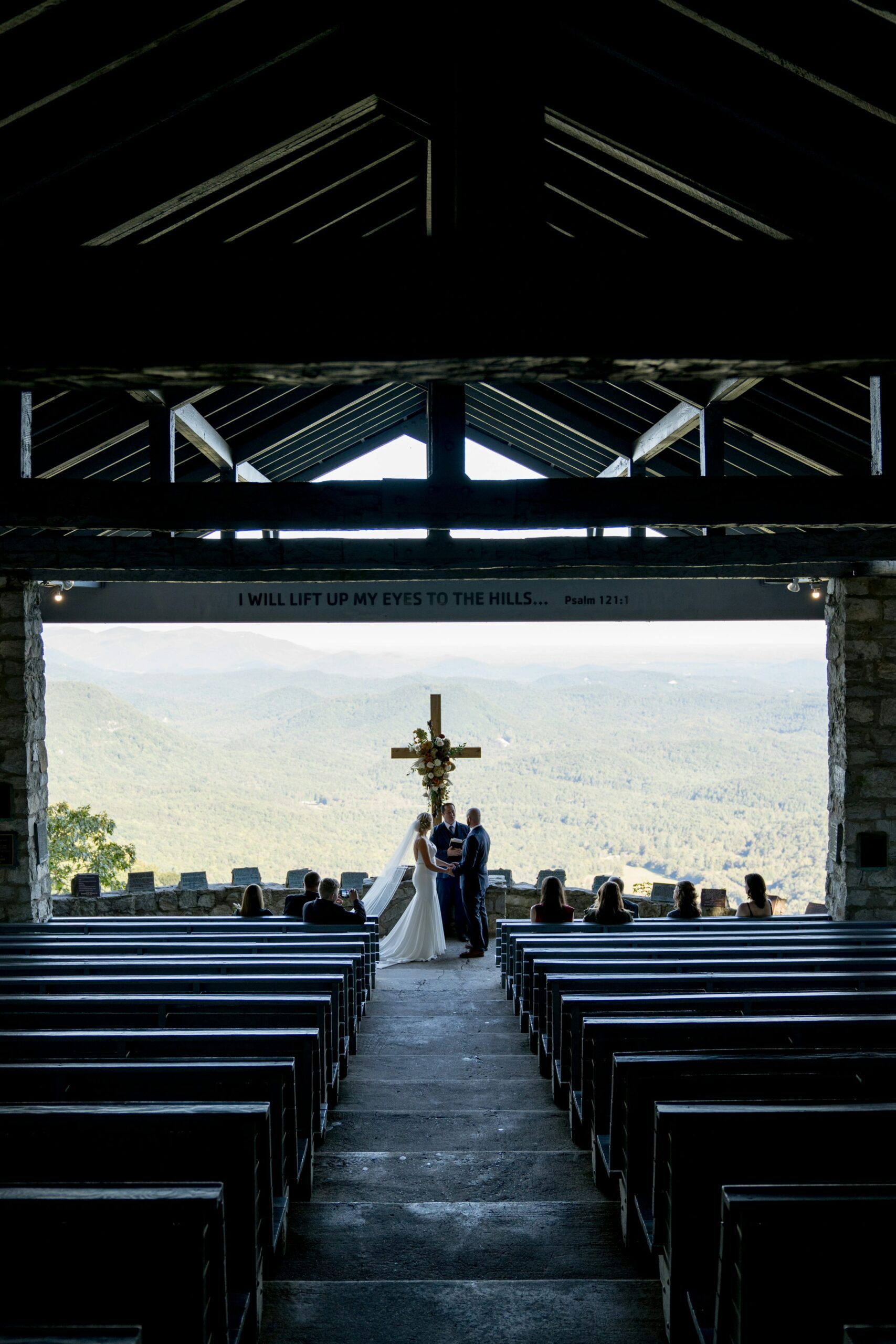
The Hindu-Christian couple represents a union of two distinct traditions, blending vibrant Hindu rituals with the Christian faith’s teachings. They navigate challenges with mutual respect, celebrating festivals like Diwali and Christmas while creating a harmonious life rooted in shared love and values.
Q & A
- What are practical ways for a Hindu-Christian couple to integrate both faiths into their home life?
- Celebrating major festivals like Christmas and Diwali together can integrate both traditions. For example, they could decorate their home with lights for Diwali and a Christmas tree for the holidays. Meal times could incorporate dietary considerations, such as vegetarian options for Hindu traditions and prayer before meals from Christian customs.
- How can couples navigate differences in wedding attire traditions for Hindu and Christian ceremonies?
- The bride and groom can embrace the unique styles of both cultures by choosing traditional attire for each ceremony. For instance, a bride might wear a white gown for the Christian ceremony and a red and gold saree for the Hindu ceremony, while the groom could opt for a suit and tie for one and a sherwani for the other. These outfits highlight the beauty of both traditions while respecting their significance.
- How do couples maintain equality in interfaith marriages?
- Ensuring that neither religion is seen as superior is critical. For example, one Hindu-Christian couple adopted a rule where all major decisions about faith practices were made together, emphasizing equality and mutual respect
- How can couples manage differing views on salvation and religious exclusivity?
- They can focus on shared values like love, compassion, and service, rather than doctrinal differences. For example, a Christian spouse might respect Hindu beliefs about reincarnation, while the Hindu spouse appreciates Christian teachings on grace.
- How do couples ensure they are making informed decisions about their interfaith marriage?
- Couples should learn about each other’s faiths and expectations. For instance, understanding that baptism is a significant commitment in Christianity, or that Hinduism emphasizes pluralism, can help them navigate differences.
Stories
Muslim – Hindu Couples
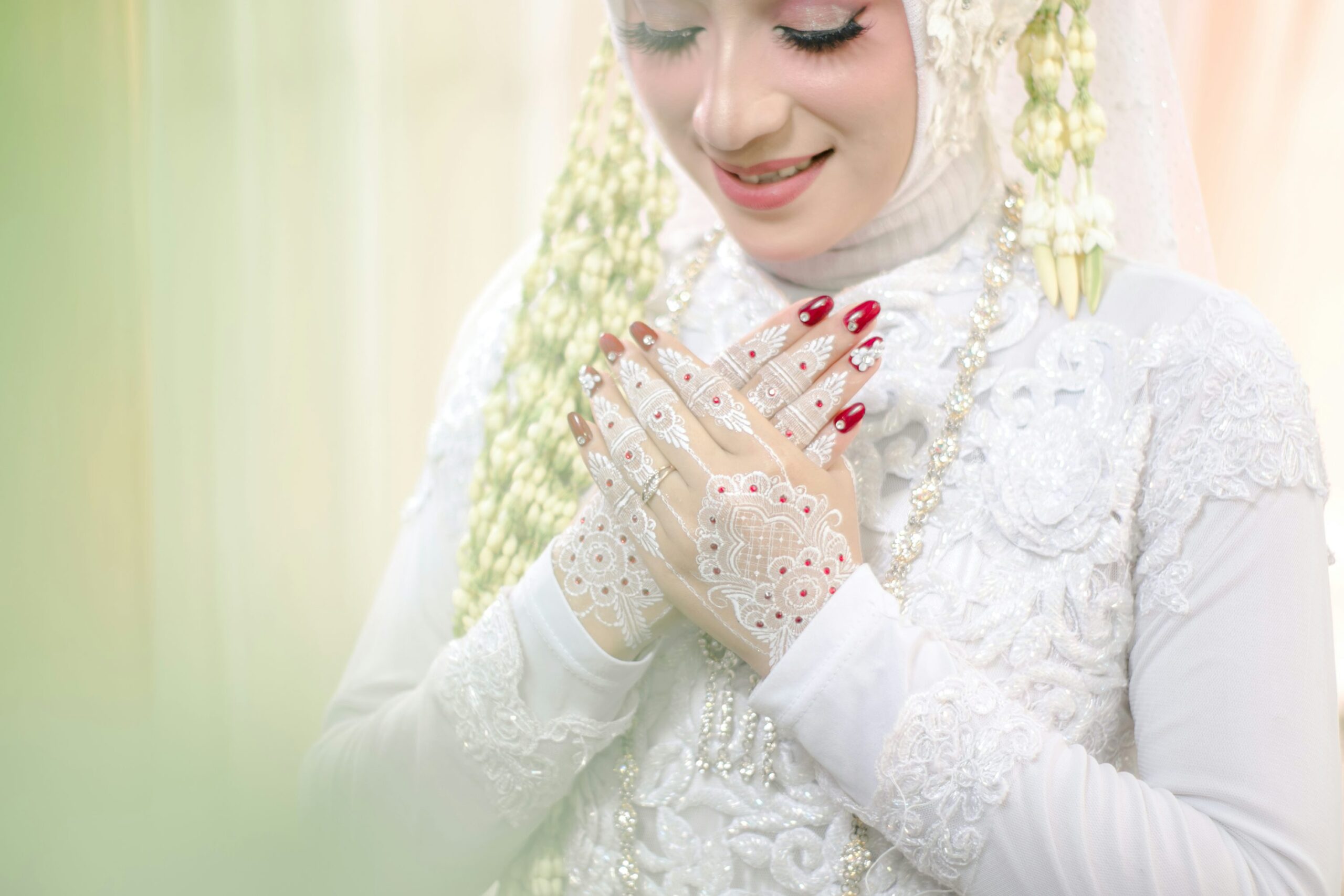
Hindu-Muslim couples often navigate a rich tapestry of cultural and religious diversity. They face the unique challenge of blending traditions from two major world religions with distinct practices and beliefs. From dietary preferences to prayer routines, their union often serves as a bridge between communities while fostering mutual understanding and respect.
Possible Challenges:
- Dietary Restrictions: Conflicts over vegetarian preferences (Hindu) versus Halal requirements (Muslim).
- Religious Rituals: Navigating Hindu idol worship and Islamic emphasis on monotheism.
- Marriage Ceremonies: Deciding between a Hindu vivaha and Islamic Nikah, or incorporating both.
- Child Rearing: Choosing a single faith, blending both, or exposing children to each religion.
- Family Resistance: Overcoming disapproval or ostracism from families due to religious differences.
- Holiday Celebrations: Balancing major festivals like Diwali and Eid without sidelining either.
- Religious Conversion: Addressing expectations for conversion or participation in rituals.
- Community Prejudice: Managing societal stereotypes and prejudices against interfaith marriages.
Q&A
- How do interfaith couples balance their religious identities while respecting each other’s beliefs
- Respecting each other’s beliefs can involve celebrating festivals from both traditions—like Eid and Diwali—together, without imposing participation. For example, a Muslim partner might fast during Ramadan while their Hindu spouse supports them, and the Hindu partner may observe pujas with their Muslim spouse’s encouragement. Mutual learning about each other’s practices, such as reading the Quran or Bhagavad Gita, fosters understanding.
- How can Hindu-Muslim couples ensure their safety while living in regions with heightened religious tensions?
- Safety can be prioritized by being cautious about openly displaying their relationship in areas with heightened tensions. Couples may also seek guidance from religious organizations that support interfaith harmony, such as Sufi shrines or ashrams known for inclusivity. In legal matters, they can explore civil marriage options recognized by both religions or consult Sharia or Hindu personal law experts.
- What role do parents play in shaping attitudes toward interfaith relationships, particularly when they come from communities with a history of religious conflict?
- Parents might emphasize religious differences due to past experiences or societal pressures. For example, Hindu parents may fear conversion to Islam, while Muslim parents may worry about losing cultural practices like observing Ramadan. Couples can educate their parents by demonstrating mutual respect, such as celebrating both Ramadan and Navratri together.
- What role does mutual respect play in navigating religious obligations, such as puja for Hindus and fasting during Ramadan for Muslims?
- Mutual respect means participating in or supporting each other’s religious practices without compromising personal beliefs. For instance, a Muslim spouse can respectfully observe a Hindu partner’s puja without actively participating, while a Hindu spouse can offer support during Ramadan by fasting or preparing iftar meals.
- What strategies can Hindu-Muslim couples use to address concerns about raising children in interfaith families?
- They can educate their children about both religions by teaching them key practices like the Hindu value of ahimsa (non-violence) and the Islamic practice of zakat (charity). Couples can also expose their children to both holy books, such as the Bhagavad Gita and the Quran, fostering mutual understanding.
More stories
Hindu – Jewish Couples
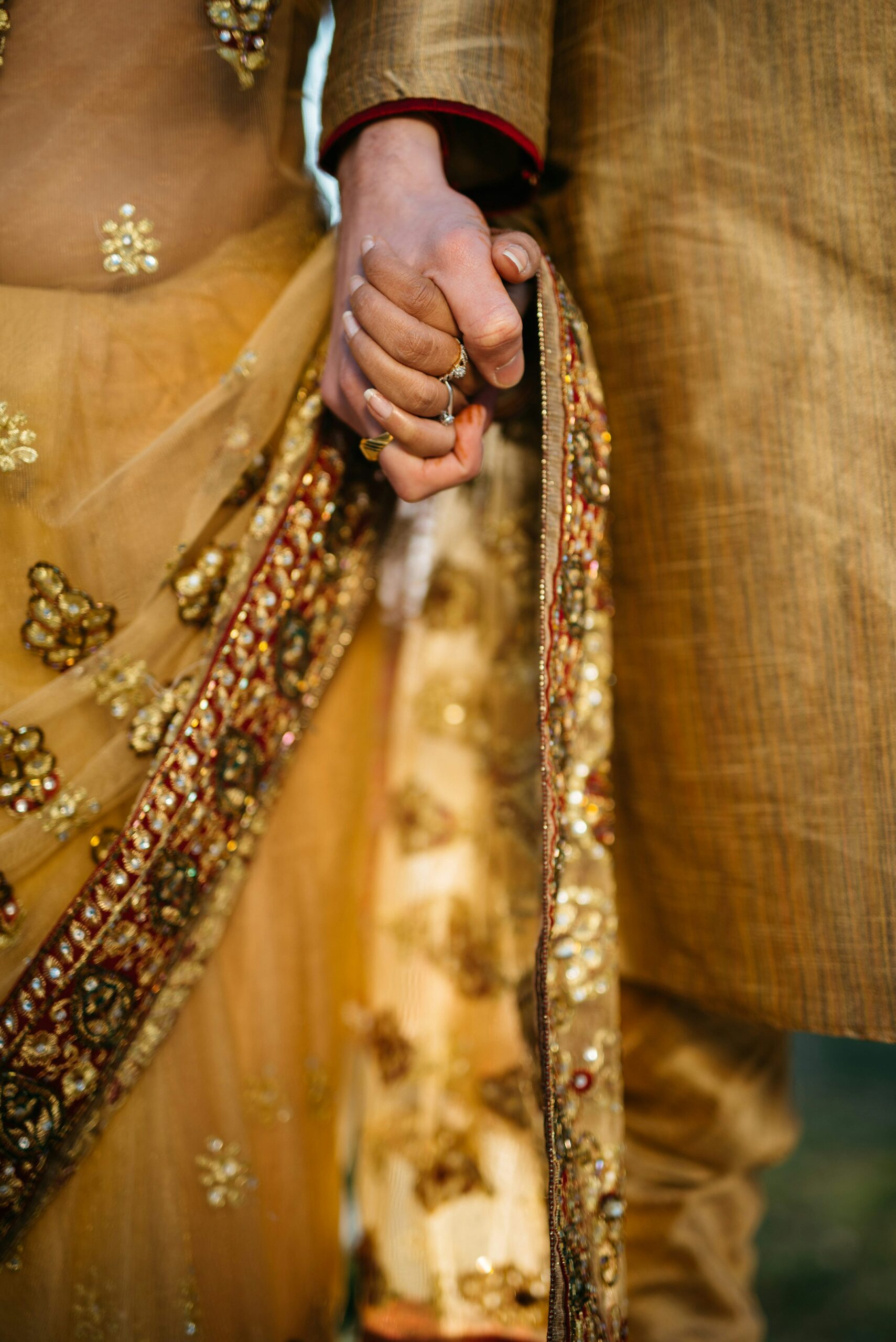
Key Challenges
A Jewish-Hindu couple bridges two ancient, vibrant traditions. Jewish monotheism and structured rituals meet Hinduism’s pluralistic spirituality and rich ceremonies, creating a unique union of diverse practices and values.
Key Challenges
- Religious Practices: Differences in rituals, like Shabbat vs. puja
- Festivals: Balancing Hindu and Jewish holiday calendars.
- Family Expectations: Pressure to marry within the faith.
- Raising Children: Choosing which faith(s) to introduce.
- Theology: Reconciling monotheism with polytheistic elements.
- Community: Acceptance within both religious group
Q&A
- What are effective ways to navigate the complexities of blending Jewish and Hindu rituals into a single celebration, or opting for separate ceremonies?
- A combined ceremony can incorporate key symbols, such as using a chuppah (Jewish canopy) over the Hindu mandap (wedding altar), or reciting Sanskrit mantras alongside Hebrew blessings. Alternatively, separate ceremonies ensure each religion is fully honored, with the joint reception providing an opportunity to celebrate both cultures.
- How can couples address initial resistance or discomfort from family members when announcing their interfaith relationship?
- Share common values between Judaism and Hinduism, such as the emphasis on family, community, and respect for tradition. Involve parents in small interfaith activities like attending a Shabbat dinner or a puja, helping them connect to the couple’s shared journey.
- What are the challenges and benefits of raising children with dual Jewish and Hindu identities
- Challenges include navigating differing religious obligations, such as observing Jewish dietary laws and Hindu vegetarian practices. Benefits include exposing children to rich, complementary traditions that value spirituality, ethical living, and respect for elders.
- What role does attending religious services and ceremonies from both faiths play in fostering mutual understanding and respect in a marriage?
- Attending synagogue for Yom Kippur and joining a Navratri celebration at a temple allows partners to connect with each other’s spirituality. This shared exploration deepens mutual respect and appreciation.
- How can couples navigate dietary restrictions, such as vegetarian Hindu practices and kosher laws, in their shared meals and celebrations?
- Focus on commonalities like vegetarian, kosher-friendly dishes. Preparing meals like potato latkes with Indian spices or adapting curries to kosher standards ensures both traditions are respected.
Stories